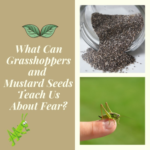
Meekness Is Not Weakness
“Blessed are the meek, for they shall inherit the earth” (Matthew 5:5 NIV).
Jesus described himself as gentle in Matthew 11:29, “Take my yoke upon you and learn from me, for I am gentle and humble in heart, and you will find rest for your souls” (emphasis added). A gentle man is meek. Meekness is a humble attitude that expresses itself in the patient endurance of offenses. Meekness is not weakness. Many men confuse the two. However, the difference between a meek person and a weak person is a weak person can’t do anything. A meek person, on the other hand, can do something but chooses not to do it out of strength, not weakness.
When we “turn the other cheek” we do so out of meekness. We may have the ability and even the right to retaliate, but in strength, not weakness, we show restraint. Meekness is a virtue that we cannot
Jesus taught in the Sermon on the Mount about the meek. “Blessed are the meek, for they shall inherit the earth” (Matthew 5:5). Jesus saw the virtue in meekness. Meekness is a Christ-like attribute and a fruit of the Spirit (Galatians 5:22). It’s a virtue that draws courage, strength, and conviction not from self-centered flesh or pride. Meekness is certainly not weakness; it is power under control.
Probably the least admired character quality in America is meekness. And yet the greatest one who ever lived was a meek and humble man. He was certainly not weak.
We are quick to judge others as weak when they may indeed be showing meekness. I read a story about a man that murdered a stranger. The evidence was overwhelming, and he admitted to the crime. The family of the deceased woman forgave the man and asked the judge to not sentence the man to death. I was overwhelmed with the meekness of this family. I know some viewed the family as weak or cowardly, but I wonder if these people understand the difference between weakness and meekness.
I saw a story on television years ago about a man that was released from prison after spending many years inside for a crime in which he was later proved innocent due to DNA evidence that was not available at the time of his trial. He was given a very small cash award from the state and released to get on with his life. This man had every right to curse those responsible for his time in prison. Instead, he prayed blessings on all those involved to relieve them of any pain and regret that they may feel due this injustice. He became a Christian while in prison and later became a minister to many of the other inmates. He was meek. May we all be so blessed as to show such meekness the next time we have the opportunity to seek revenge.
Prayer: Dear God: Help us remember that by showing meekness we are showing strength, and we are showing Jesus. Amen.
Meet the Author
Todd Shupe is a Men’s Ministry Specialist through the General Commission of United Methodist Men and is in training to be a Certified Lay Minister through the Louisiana Conference of the United Methodist Church. He currently serves as the President of the Baton Rouge District of United Methodist Men and is a Board Member for Gulf South Men and serves on the Action Team for The Kingdom Group. He is a volunteer for the Walk to Emmaus, Grace Camp, and Iron Sharpens Iron. Todd resides in Baton Rouge, Louisiana.
We welcome your comments below.
Thank you for visiting. We trust that you have enjoyed reading our articles.
Liked this post?
Read more below or search for more topics…
-
I Can’t Get No Satisfaction

I Can’t Get No Satisfaction
“He has set the right time for everything. He has given us a desire to know the future, but never gives us the satisfaction of fully understanding what He does” (Ecclesiastes 3:11 NIV).
“(I Can’t Get No) Satisfaction” was a song by the English rock band The Rolling Stones, released in 1965. The lyrics refer to secular frustration and commercialism, not Christianity. However, there is a message in the song that has been true since the book of Ecclesiastes was written by King Solomon around 935 BC. In many instances, we cannot get satisfaction, at least not…
Read More -
What Can Grasshoppers and Mustard Seeds Teach Us About Fear?

What Can Grasshoppers and Mustard Seeds
Teach Us About Fear?
“The Lord himself goes before you and will be with you; He will never leave you nor forsake you. Do not be afraid; do not be discouraged” (Deuteronomy 31:8 NIV).Fear is our natural response to physical or emotional danger. Fear can be healthy to help us avoid dangerous situations. We often fear situations that are not as serious as we perceive, which can trigger an extreme, and often unnecessary, fight-flight-or-freeze response. As a result, we may find ourselves avoiding challenges that could benefit them in the long run or hanging back during…
Read More -
What Are Your Priorities

What Are Your Priorities?
Perhaps our greatest power is to establish our priorities. These are the things that motivate us. Priorities are based on values, beliefs, ideals, and commitment. They define each of us as a person. Some are motivated by fame or money. Others are motivated by their friends or family. In short, there can be hundreds of reasons that motivate us each day. It is critically important to recognize that we alone have the power to set our priorities and if we do not set them, then society will set them for us. Popular culture will set our priorities…
Read More

